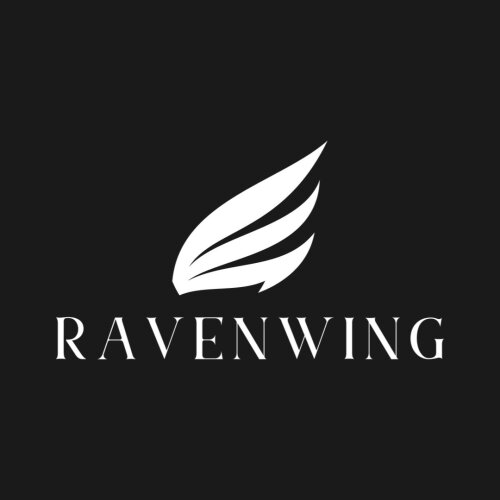Best Public-Private Partnerships (PPP) Lawyers in Bang Na
Share your needs with us, get contacted by law firms.
Free. Takes 2 min.
List of the best lawyers in Bang Na, Thailand
About Public-Private Partnerships (PPP) Law in Bang Na, Thailand
Public-Private Partnerships, or PPPs, are collaborative projects between government agencies and private sector entities to develop, finance, construct, operate, and maintain public infrastructure or services. In Bang Na, Thailand, PPPs have become increasingly significant, especially as the district continues to urbanize and expand its infrastructure. The legal landscape surrounding PPPs in Thailand is defined by specific regulations, guidelines, and contractual frameworks designed to ensure effective collaboration, transparency, and the protection of public interests.
Whether you are a private developer, contractor, investor, or representing a public authority in Bang Na, understanding the legal obligations, opportunities, and risks associated with PPPs is crucial to achieving successful project outcomes.
Why You May Need a Lawyer
Engaging in a PPP project can be complex, involving multiple stakeholders, compliance requirements, and significant financial investments. Here are some common situations where obtaining legal assistance is critical:
- Drafting, reviewing, and negotiating PPP agreements or contracts
- Understanding eligibility and qualification requirements for participating in government tenders
- Ensuring regulatory compliance with local, national, and sector-specific laws
- Managing disputes between public and private partners
- Addressing land acquisition, zoning, and environmental impact issues
- Handling changes in project scope, financial terms, or operational responsibilities
- Navigating the procurement process and risk allocation
- Securing permits, licenses, and approvals from local authorities
Legal counsel can provide valuable guidance to prevent costly mistakes and safeguard both public interests and private investments throughout every phase of a PPP project.
Local Laws Overview
In Thailand, PPP projects are principally governed by the Private Investment in State Undertaking Act (commonly referred to as the PPP Act) and related regulations. These laws aim to standardize the process for private investment in public projects, promoting transparency, competition, and accountability.
Key aspects of local laws relevant to PPPs in Bang Na include:
- Clear procedures for project initiation, selection, and approval by relevant state authorities
- Requirements for public disclosure and competitive bidding to ensure fair participation
- Obligations for feasibility studies and impact assessments before project commencement
- Guidelines on risk-sharing, revenue allocation, and dispute resolution between parties
- Strict rules for financial reporting and auditing of PPP projects
- Regulations on termination, transfer, and post-project management responsibilities
- Local zoning and municipality regulations specific to Bang Na that may impact project location and design
Complying with these local and national requirements is essential to avoid delays, penalties, or legal disputes. Lawyers with expertise in PPP law can help navigate these regulatory frameworks effectively.
Frequently Asked Questions
What is a PPP in the context of Bang Na, Thailand?
A PPP in Bang Na refers to a legally structured collaboration between a government entity (such as a municipal office or state agency) and a private firm to provide public infrastructure or services in the district, typically under a contractual arrangement.
Who can participate in PPP projects in Bang Na?
Both Thai and foreign private companies, joint ventures, or consortiums may participate, subject to eligibility criteria set by national and local authorities. Public entities initiate projects and select private partners through competitive bidding or direct negotiation, depending on the circumstances.
How are PPPs regulated in Thailand?
PPPs are governed by the Private Investment in State Undertaking Act and related cabinet resolutions, ministerial regulations, and guidelines issued by relevant bodies such as the State Enterprise Policy Office of Thailand.
What types of projects are commonly developed using PPP models in Bang Na?
Typical PPP projects in Bang Na include transportation infrastructure (such as roads or metro stations), public utilities, schools, hospitals, waste management facilities, and urban development initiatives.
Why should a private company work with a public partner?
Working with a public partner can provide private companies with secure, long-term contracts, access to public land or resources, risk-sharing opportunities, and the ability to contribute to major infrastructure projects with significant social impact.
What are the main risks in a PPP project?
Risks include changes in regulatory policies, construction delays, financial uncertainties, disputes over contract terms, unforeseen operational issues, and challenges in managing stakeholder expectations.
How are disputes resolved in PPP agreements?
Most PPP agreements specify dispute resolution mechanisms, such as mediation, arbitration, or litigation, often in accordance with Thai law or international standards depending on the contract terms.
Do PPPs require environmental or social impact assessments?
Yes, most PPPs, especially those involving large-scale infrastructure or public services, must undergo environmental and social impact assessments as part of the feasibility study requirement.
Can foreign companies participate in Bang Na PPP projects?
Foreign firms can participate but may face additional regulatory requirements, such as registration with Thai authorities, demonstrating technical expertise, and sometimes partnering with local entities.
What are the first steps for a private entity interested in a PPP in Bang Na?
Identify available project opportunities, ensure company eligibility, prepare necessary documentation, and consult with legal and financial advisors familiar with Thai PPP regulations and the local Bang Na context.
Additional Resources
If you require information or support regarding PPPs in Bang Na, consider the following resources:
- State Enterprise Policy Office (SEPO) - Oversees PPP policy and regulatory compliance in Thailand
- Bang Na District Office - Provides local regulations, zoning laws, and project approvals
- Infrastructure Project Management Units within relevant ministries (Transportation, Health, Education, etc.)
- Legal aid centers and local law firms specializing in infrastructure and public law
- Thai Chamber of Commerce and industry associations related to real estate, construction, and engineering
These organizations can offer guidance on policy updates, project opportunities, compliance requirements, and professional referrals.
Next Steps
If you are considering involvement in a PPP project in Bang Na, Thailand, or need legal advice regarding an ongoing project:
- Gather relevant documents concerning your interest or involvement in a PPP
- Review the specific regulations applicable to your project type and location
- Contact a reputable lawyer or law firm with experience in Thai PPP law and local regulations in Bang Na
- Prepare a clear summary of your objectives and concerns for the consultation
- Engage in preliminary discussions to understand your legal position, potential risks, and available options
- Take action based on legal advice, such as submitting an expression of interest, initiating negotiations, or addressing compliance issues
Always work with qualified legal professionals to navigate the regulatory and contractual complexities of Public-Private Partnerships and ensure your interests are protected at every stage. Early legal guidance can make a significant difference in the success and sustainability of your PPP involvement.
Lawzana helps you find the best lawyers and law firms in Bang Na through a curated and pre-screened list of qualified legal professionals. Our platform offers rankings and detailed profiles of attorneys and law firms, allowing you to compare based on practice areas, including Public-Private Partnerships (PPP), experience, and client feedback.
Each profile includes a description of the firm's areas of practice, client reviews, team members and partners, year of establishment, spoken languages, office locations, contact information, social media presence, and any published articles or resources. Most firms on our platform speak English and are experienced in both local and international legal matters.
Get a quote from top-rated law firms in Bang Na, Thailand — quickly, securely, and without unnecessary hassle.
Disclaimer:
The information provided on this page is for general informational purposes only and does not constitute legal advice. While we strive to ensure the accuracy and relevance of the content, legal information may change over time, and interpretations of the law can vary. You should always consult with a qualified legal professional for advice specific to your situation.
We disclaim all liability for actions taken or not taken based on the content of this page. If you believe any information is incorrect or outdated, please contact us, and we will review and update it where appropriate.










